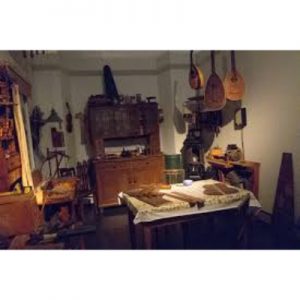Can I Install Solar Panels on My Roof? (Answered)
If you’re considering solar panels, you should be aware that your roof will need to be suitable for the installation. You’ll also need to determine if you have enough sun exposure to justify the upfront costs.
Solar panels are relatively lightweight, but the racking system adds some weight. Make sure that your roof can handle the extra stress.
1. Check Your Roof’s Suitability
Before you decide to install solar panels on your home, it is essential that your roof is suitable. This means that it must be strong enough to hold the additional weight of the panels, and that it has sufficient space to accommodate the solar panel array. The best way to determine this is to have a professional conduct an inspection of your roof.
There are a few things to consider when evaluating your roof’s suitability for solar power:
One of the most important factors is its orientation. Solar panels must be oriented in the right direction to capture maximum sunlight for energy generation. Ideally, they should face south (for houses in the Northern hemisphere) or east or west, depending on your climate. In addition, shading is a significant factor. Shade from trees and other structures limits the amount of sunlight your roof receives, thereby decreasing your energy production capacity. Professionals such as these Toledo roofers will be able to assess your roof’s shading issues and recommend solutions.
The type of roofing materials on your roof also affects its suitability for solar panels. Composite and asphalt shingle, tile, and steel-clad roofs are all good candidates for solar power. However, if your roof is made from a different material, it is best to consult with a professional to make sure the mounting hardware is compatible with your roofing system.
In addition, if your roof has signs of degradation or damage, you should not consider installing solar panels. This is because the panels are very heavy, and may cause structural damage to your roof if they are not mounted properly.
2. Check Your Home’s Energy Use
Before you start installing solar panels on your roof, it’s essential to evaluate your home’s energy use. This will help determine how much power your solar system will produce. Taking steps to reduce your energy consumption will also lower your electricity bills.
The shape and inclination of your roof will also impact how well your solar panels work. Ideally, your panels should be oriented …
Read more


 There’s a huge selection of musical instruments, and one cannot be knowledgeable enough to repair each one. However, this should not prevent you from pursuing your dream of becoming a musical instrument technician.
There’s a huge selection of musical instruments, and one cannot be knowledgeable enough to repair each one. However, this should not prevent you from pursuing your dream of becoming a musical instrument technician. Some dream of becoming musicians themselves but could not play that well. They sometimes end up as instrument technicians – this way, they enjoy both worlds: doing what they love and earning from it.
Some dream of becoming musicians themselves but could not play that well. They sometimes end up as instrument technicians – this way, they enjoy both worlds: doing what they love and earning from it.